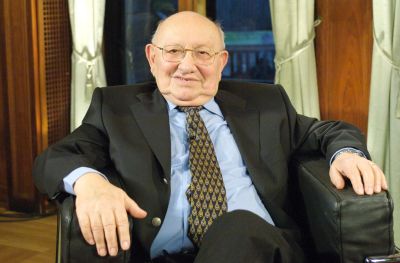Marcel Reich-Ranicki

Marcel Reich-Ranicki was the first and hitherto the only literary critic to empty the streets in Germany. Many viewers arranged to see his TV programme together. And on the following day there were loud discussions amongst people imitating his inimitable Eastern European accent. He was the superstar of the "Literary Quartet" on ZDF, and the late 1980s marked the peak of his career as the most successful literary critic in Germany. The German press loved to call him the Literature Pope.
Behind him lay his work as literary critic for the “Frankfurter Allgemeinen Zeitung”. Later he was to become literary critic on the Hamburg weekly paper “Die Zeit” and finally head of the literary department on the FAZ. Behind him also lay his grammar school years in Berlin under Nazi Germany, his deportation to Warsaw during the so-called "Polish Action" in 1938, the inconceivable cruelties of the Warsaw ghetto, and the deaths of his relatives in the concentration camps, his flight and years in hiding, his work with the Polish secret police (UB), with the Polish foreign press service (MBP) and his work in the Polish Embassy in London. Behind him also was his return to Poland and another imprisonment, a ban on publication and finally his flight to the Federal Republic of Germany in 1958. From then on the Polish-German publicist and literary critic made his home in the FRG and was a prominent figure in popularising German literature. He never denied his Jewish, Polish-German origins, but nonetheless wrote in his autobiography that he had "no country of his own, no home and no fatherland". In the final analysis he maintained his home was in literature. When we look back on his life we are more than inclined to believe him.



